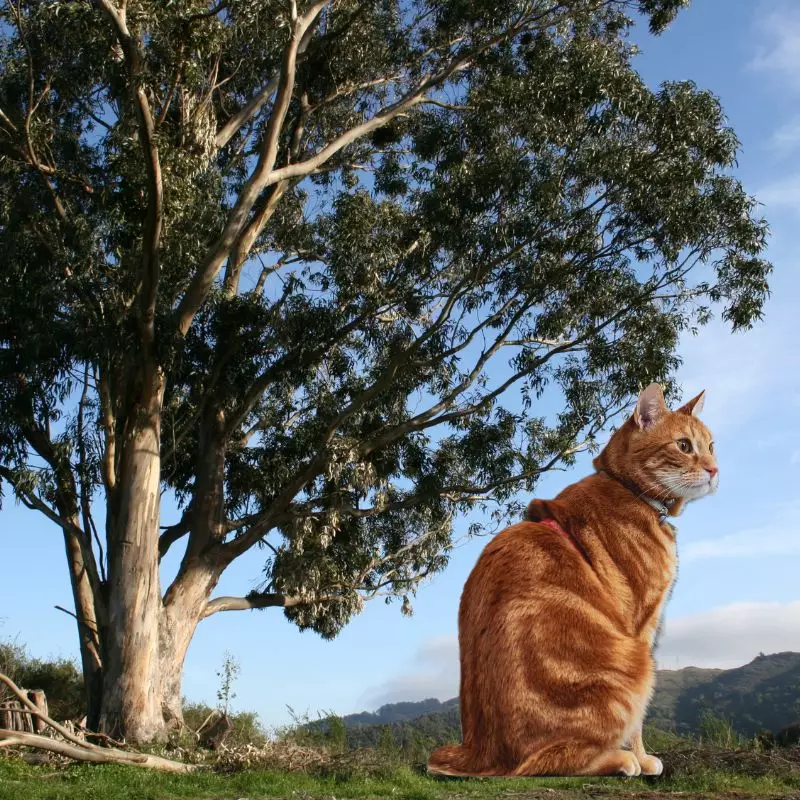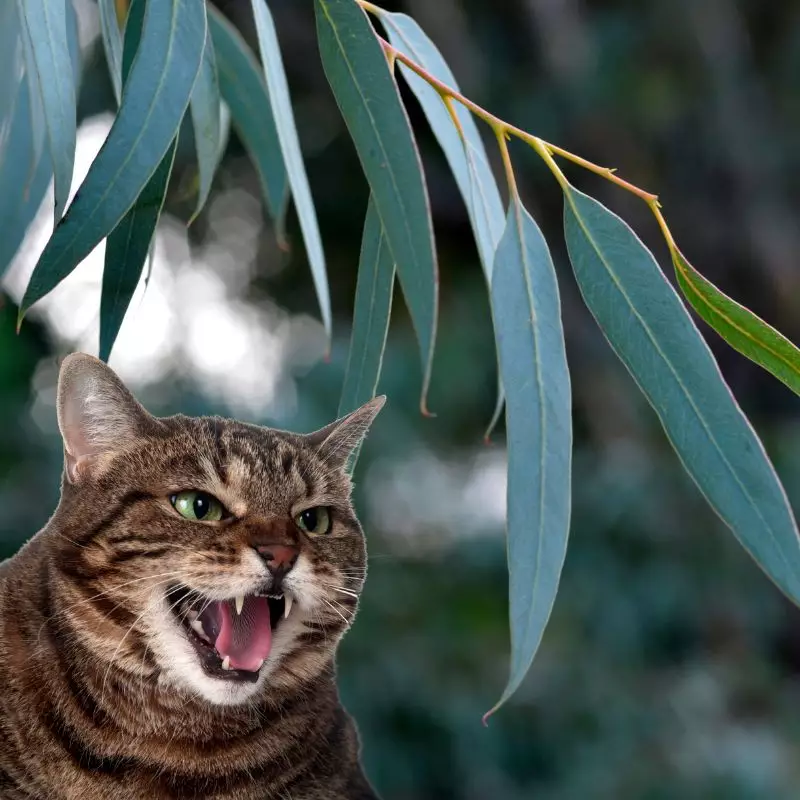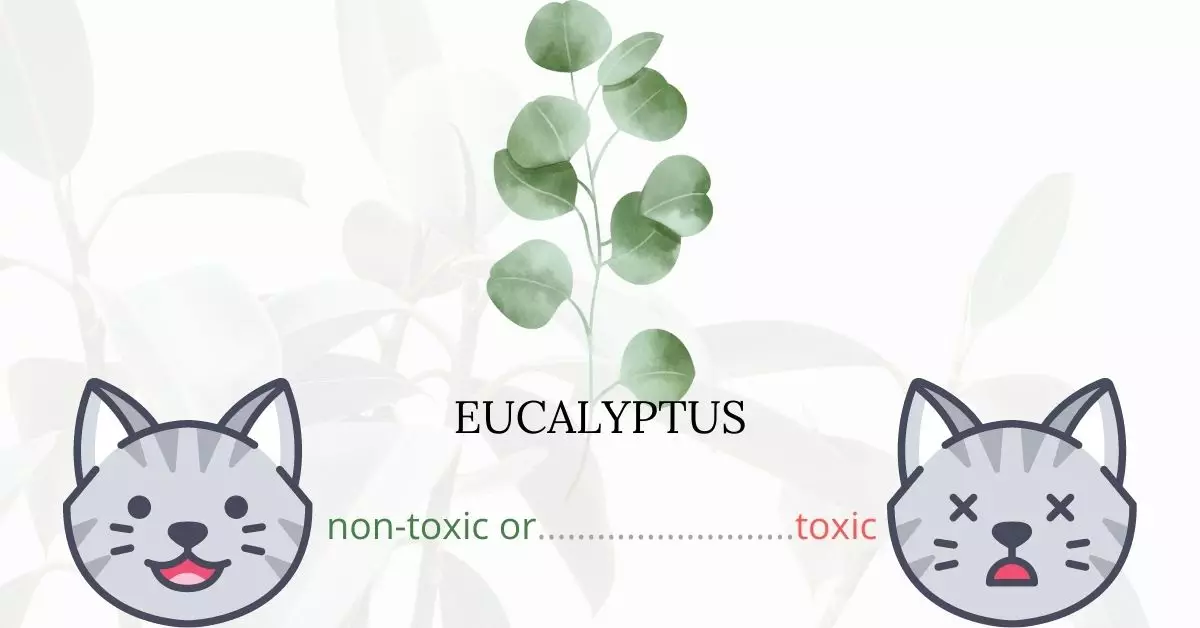Yes, eucalyptus is toxic to cats. The eucalyptus plant produces a compound called eucalyptol, also known as cineole, commonly found in essential oils. When ingested, eucalyptol acts as a gastrointestinal irritant leading to symptoms like discomfort, vomiting, and diarrhea in cats. Additionally, it possesses neurotoxic properties which can manifest as depression, confusion, and even seizures in cats.
This article is a collaborative effort with a team of experienced DVMs (doctors of veterinary medicine). Their invaluable insights ensure that we provide accurate and up-to-date information on the potential risks associated with various plants, Eucalyptus in this instance, and their effects on cats. Our research is also corroborated by high-authority websites such as ASPCA and PetMD, ensuring a comprehensive understanding of every plant’s potential hazards.
Clinical Signs of Eucalyptus Poisoning in Cats

When a cat comes into contact with, smells, or ingests the eucalyptus plant, especially its oil which contains eucalyptol, various clinical signs can manifest. Here’s a breakdown of each sign and its potential cause due to eucalyptus exposure:
- Appetite Loss: A result of the gastrointestinal irritation and discomfort caused by eucalyptus ingestion.
- Burning Sensation in the Mouth: The strong chemicals in eucalyptus can cause a direct irritation to the mucous membranes of the mouth.
- Confusion and Depression: Indicators of neurological involvement, as eucalyptol has neurotoxic properties.
- Dilated Pupils: A possible neurotoxic effect from eucalyptol, indicating altered neurological function.
- Diarrhea: A result of gastrointestinal irritation.
- Difficulty Swallowing: Caused by the burning or irritation in the throat or esophagus.
- Excessive Salivation: A cat’s natural response to try to expel or dilute the irritant.
- Itching: If the eucalyptus oil comes in contact with the skin, it can cause dermatological reactions.
- Lethargy: A general sign of illness, also associated with the depressive effects of eucalyptol on the central nervous system.
- Low Blood Pressure: Can result from the systemic effects of the toxin.
- Muscle Deterioration: A more severe sign indicating prolonged exposure or ingestion.
- Slowed Reflexes: Another manifestation of the neurotoxic effects of eucalyptus.
- Swelling: Often seen around the mouth or other areas of direct contact, due to irritation or an allergic reaction.
- Vomiting: A direct result of gastrointestinal irritation.
- Wheezing: If the cat has inhaled the oil or its vapors, this can lead to respiratory irritation and difficulty in breathing.
It’s crucial to remember that the onset of these symptoms can sometimes take several hours post-exposure. If you suspect your cat has come in contact with or ingested eucalyptus, immediate veterinary attention is advised.
First Aid and Treatment of Eucalyptus Poisoning in Cats

Inducing vomiting in the event of an overdose is not suggested due to the caustic nature of Eucalyptus oil, since this might cause severe damage. If any oil remains on the skin or in the eyes of the cat, the region should be carefully washed to avoid further negative reactions. To remove any leftover poison, the veterinarian may utilize stomach lavage or activated charcoal.
IV fluids for dehydration and sugar-and-electrolyte combinations to correct any imbalances are likely to be used as general supportive therapy. Laxatives and stimulants may be prescribed, as well as antihistamines and pain relievers to alleviate any itching, swelling, or pain.
Recovery from Eucalyptus Poisoning in Cats

It will help your cat recover faster if the atmosphere in which he or she will be recovering is peaceful and serene. Ample fresh water should be supplied, and additional bathroom breaks should be expected. Cats recovering from anesthesia for a stomach irrigation procedure may experience coordination issues and become confused and disoriented at first.
Prevention of Eucalyptus Poisoning in Cats
Essential oils and products containing eucalyptol should be kept away from your cat’s reach. If you live in an area where eucalyptus tree grows, restrict your cat’s outdoor activities. Try planting cat-safe plants that your cat can graze on at home.
If you love plants but have cats at home, check out these lists:





